Acting Out: An interview with Michael Urie
From starring in 'Hamlet' at Shakespeare to directing 'Bright Colors' at Studio, all the world’s his stage. Literally.

“Michael Urie is a ball of energy,” says Drew Droege. “He is pure love and joy. He is so positive, and he loves what he’s doing. He’s somebody who’s just so in his element when he’s working.”
Droege is a close friend of both Urie and his partner, Ryan Spahn. And it is through that friendship that Urie convinced Droege to fully stage his one-man show, Bright Colors and Bold Patterns, which is following a successful Off Broadway run with a summer stint at the Studio Theater, starring the magnificent Jeff Hiller (see page 31). Urie is the show’s director, even though he concedes “I don’t do much directing, I don’t really think that way.”
At the same time, Urie is back at The Shakespeare Theater for its annual Free For All, starring in the company’s landmark production of Hamlet. When the show first played the Harman in early 2018, Metro Weekly theater critic Kate Wingfield praised Urie’s take on the iconic Shakespearean role: “Urie doesn’t just bring the angst, he brings sheer likability. He may be tortured, but he is also funny, adorably flappable, entertainingly clever and ever vulnerable, even as he rails. He is an awkward young man full of charm, life, and ridiculous opinions, and you want him around. It’s original, it’s wonderful, and Urie, like much of the cast, is superb in his delivery of Shakespeare’s language. Precise, whip-fast and fully cognizant, it is music to the ears and soul.”
For his part, Urie is thrilled to be revisiting the role, noting that he’s delving even deeper into the troubled Danish prince’s psyche. He’s even more thrilled that the production is free, opening it up to a citywide audience who will no doubt be mesmerized by director Michael Kahn’s original, bracing concept (restaged here by Craig Baldwin).
“There’s something great about playing to an audience that has chosen to come, who is just there to enjoy themselves,” says the tall, strikingly handsome 38-year-old. “There’s something so much more relaxing, I think, for an audience, to watch a show that they haven’t spent money on. And let’s be real — there are so many people who can’t afford the tickets. Tickets are expensive. And to have a big, expensive production be free is thrilling, and to be able to do this play for the masses, as it were, is very exciting, and it’s something I’ve always wanted to do.”
Urie was born and raised in the suburbs of Dallas, Texas, and felt a draw to the arts at an early age. After studying at Julliard, and a run of several small Off Off Broadway plays, he was cast in the ABC hit series Ugly Betty, as flamboyant, bitchy personal assistant Marc St. James. Urie ran with the part and made it indelible and unforgettable.
He’s had subsequent stints in TV — including a memorably offbeat NSA operative on both The Good Wife and its spin-off, The Good Fight — but it’s live theater that holds his heart. Last September, he starred in a critically-hailed revival of Harvey Fierstein’s Torch Song Trilogy — truncated to Torch Song — an essential piece of LGBTQ theater. The show closed in January, and hopes of a national tour were scuttled, but Urie remained unphased. Just bringing Arnold Beckoff to life for a new generation meant the world to him.
Urie has been taking New York by storm as of late, producing “Pride Plays,” a series of LGBTQ plays during June that delved into both the history of Queer theater (As Is, The Baltimore Waltz, and looked ahead at new offings to come). “What’s wonderful about being in the theater as a queer artist is there is no lack of representation in queer theater,” Urie says. “The problem is there’s too much queer theater and not enough slots. We did 19 programs over five days in Pride Plays, and no two programs were the same at all. It was so diverse.”
Recently, he made a sensation at The Met Gala, walking the red carpet in gender-split couture by Christian Siriano.
“Christian said, ‘I think you should be half man, half woman,'” recalls Urie. “And I was like, ‘Whatever you say, sir.’ And then we started to figure out what that meant. I knew that I didn’t want it to be drag or a comment on being trans. I wanted it to be two sides of me. The gown side was sort of the masculine side and the tux side was the more feminine side. And that was the sweet spot of the two sides of me.” Urie still gets giddy recalling the glitzy New York affair. “Cher performed! And it was amazing. And I sat next to Awkwafina at dinner!”
In person, Urie, whom Droege calls “our generation’s Kevin Kline,” is one of the least prepossessing celebrities you’re likely to encounter. His personality — bright, upbeat, and appealing — literally sparkles, and his warmth feels genuine and unhesitating. He speaks on a variety of topics with poise and alacrity, including politics and the state of the world. But his love, his life, his passion is acting. So that’s where the focus of our conversation on this go-around — Urie’s third cover interview for Metro Weekly — is moored.
“He plays a lot of bitchy people,” says Droege. “He plays a lot of foolish, grand characters, a lot of arrogant characters. And he’s nothing like that in life. He’s actually really kind, and really a lot more introspective and insightful than a lot of the characters he plays. He’s very easy to talk to. He’s very kind. He’s very fair. And he’s very smart. And very human. I mean, he’s one of the most human people I know. I love being around him because I always know I’m going to get a real person.”

METRO WEEKLY: Since we last saw you here, starring in Hamlet, you went on to play Arnold in Harvey Fierstein’s Torch Song. Talk about the experience of doing that particular, iconic gay play.
MICHAEL URIE: When we did Hamlet last time, I had just finished Torch Song Off Broadway, and I went into Hamlet knowing I was going to be able to do Torch Song again, but on Broadway. Also, while we were doing Hamlet, I knew that I was going to get to do Hamlet again here [for the Shakespeare Theatre’s Free For All]. There is something interesting about doing a play when you know you’re going to have another opportunity, knowing you’re not done yet.
So there was this wonderful informing that happened from Torch Song to Hamlet, back to Torch Song, back to Hamlet. The roles are obviously so different, the plays so different stylistically in tone. But they’re both guys with mother troubles. They’re both guys with love troubles. They’re both guys who are at odds with the world. Hamlet’s obviously very confused by how the world has changed and how he fits in the world, whereas Arnold is sort of a groundbreaking visionary in the way that he fits into the world — he wedges himself in in a way that no one has, so he’s a kind of pioneer.
Doing Torch Song in New York at the Helen Hayes Theatre, where it originally played on Broadway, was extremely special. The stakes were really high. It’s such a huge role, a huge play, that meant so much to people. That play changed so many people’s lives and continues to. Nearly every night at the stage door I was told by young and middle-aged people that they were still going through these issues with their family, that they still had to fight their family to be accepted. And this is in New York in late 2018, early 2019. So I felt a great responsibility in doing Torch Song. There are so few roles that are that all-encompassing, that really demand every bit of you, like Arnold and Hamlet. They’re very taxing. They’re very full. So it was a lot. It was a lot of feelings.
MW: I view Torch Song as the pinnacle of pre-AIDS gay plays. What Harvey Fierstein created was remarkable. It dealt with issues way ahead of their time. It dealt with hate crimes, it dealt with marriage, it dealt with…
URIE: Adoption.
MW: Adoption. It dealt with topics that we weren’t really addressing fully at the time.
URIE: It was very interesting to talk with Harvey about his experience with the play now versus his experience with it in 1982. Because the third act of the play, which is when the mother and the son come in — Arnold has a son, David, and his mother shows up — that act was, and has always been, the real shining moment of Torch Song, where everything comes together. It’s so funny and so moving and so upsetting and, ultimately, so beautiful.
When it was done originally, the idea that a gay man would have a son and play house with another man was science fiction. It was absurd. It was ludicrous. That wasn’t really happening. Maybe occasionally here and there a gay man would end up with a gay teenage son in a foster situation, but that wasn’t really a thing like it is now, and so it was looked at as outrageous. And then, when the mother would come in and say things like, “What you are, this is a sickness. How could you expose a child to this?” And, “If I’d known you were going to be this way, I wouldn’t have bothered.” She says these horrible things that our audience gasped at every night. Because she comes in, you fall in love with her immediately — the repartee between Ma and Arnold is so wonderful and sizzly, and the audience goes nuts for it. And then she turns and starts saying these horrible things about who he is and his lifestyle and his true self. She starts to attack and discount and degrade, and the audience was devastated by it.
When it was done in 1982, the things she was saying were so normal, so commonplace. It was how people thought, how people felt. That’s what people would say to their children back then. So in 1982, the son and the adoption and the family was crazy and outrageous and shocking, but the mother was normal and commonplace. In 2019, watching a gay man parent a teenage son was normal and didn’t turn any heads, but hearing the mother say all those things was shocking. For Harvey, I think, that was the biggest realization — that the play rang true in a totally new way. It was exciting and thrilling and shocking in a totally different way. Same words. Same play. Same characters. But new world, new audience, new generation.
MW: What was it like seeing yourself fully in drag the first time?
URIE: In my mind, I looked like Bernadette Peters, but in the photographs, I do not. [Laughs.] But I felt great. I felt like Bernadette. That was my image.
MW: Do you think the role of Arnold is best fully realized by an out gay actor?
URIE: It’s a slippery slope when you start talking about who can play what. I don’t know that you really know what it’s like to be that guy if you’re straight. But there are lots of things about that guy that I’m not, so the answer is yeah, I’m sure that a straight actor could play the role and could easily convey all the things necessary to convey, even if they don’t really know what it’s like, in the same way that I think that I can convey the things that Hamlet, who is straight, goes through.
On the one hand, it is called acting. On the other hand, there are deep truths that need to be explored. When I was in Angels In America, I was Prior and Adam Driver played opposite me as Louis. And he’s not remotely gay — he’s painfully straight. But he’s such a good actor, and approached the role from within himself. I think when you’re doing true naturalism roles like Louis or Prior or Arnold, that are so human and demand so much of yourself, you start with yourself, and as opposed to putting on the character, you find what is the same about the two of you and go from there.
What Adam did, I think so beautifully, is that he didn’t say to himself, “Okay, I’m not gay. What do I need to put on in order to seem gay?” He just accepted that the way he seems could be gay. He didn’t need to add a limp wrist or a “sibilant s” or a swish in the walk or anything like that in order to be gay, because gay people come in all shapes and sizes, and even Adam Driver — hulking, giant, massive man that he is — could be a gay person, and could be called “sniveling little” like he is in the play, and we would just buy it. We would just go with it, as long as he tells the truth.
So I think it’s a very complicated subject when it comes to gay people playing gay, and straight people playing straight and all that stuff. One thing I do believe is that we are capable of putting ourselves in other people’s situations and still using what’s true about us to convey what’s true about them.
MW: Do you feel that we need to open the casting doors wider to more LGBTQ actors for all types of roles?
URIE: Yes. I think that it is not an issue of gay people need to play the gay characters and straight people need to play the straight characters. The issue is that the casting pool needs to be widened, deepened. It is about getting more people in the room. I understand that an actor has to have a certain amount of credits, visibility, experience, note, to be in major films, and that a studio can’t sign off on an actor unless they have a certain pedigree. But it seems to me there’s a casting pool problem, because it can’t possibly be that the best actor to play an LGBTQ role is always a straight cis person. It just seems impossible that that’s the case.

MW: That’s not taking into account who may be closeted in Hollywood. There are very few who are fully out.
URIE: Charlton Heston.
MW: What?
URIE: Gay as a goose.
MW: What? Really? No.
URIE: [Laughs.] No, no. I’m kidding! I just came up with the straightest name I could.
Look, in the theater, it’s not such an issue. Queer people play queer people all the time in the theater. In television, it’s not such an issue — we have a lot of representation. In movies, it still seems like it’s something we’re still working on, moving towards that, and little by little, I think we’re chipping away at it, but there still seems to be a casting pool issue when it comes to choosing the best person for the role. That’s not to say that I’m advocating for a world in which only gay people play gay people. It’s really just about leveling the playing field a little bit and hoping that we really are choosing the best people for the jobs and that more people are up for the jobs.
MW: Let’s move to Bright Colors and Bold Patterns, the show you’re directing at Studio.
URIE: So Bright Colors and Bold Patterns is a solo comedy by Drew Droege. Ryan and Drew are old friends, from when they both first moved to Los Angeles. For years, Drew would visit us and stay in our guest room. He became one of our closest friends. And one time he came to New York, and was saying, “Oh, I have a show at Ars Nova, you guys should come see it.” And I assumed, because Drew does so much improv, it was going to be some kind of wonderful, funny sketch. What I didn’t know was that he had written a play — like a real play — and he was doing it with a couple of chairs and a couple of beach towels and a margarita. But it was a full blown play, with a beginning, middle, and end. And it was brilliant.
Here was one guy doing a play with two chairs and a margarita, but creating an entire world of a Palm Springs deck with four people. He plays one character, but there are four characters in the play, and you glean what the others say based on him. There are other people around, but you don’t see or hear them, you just get what they’re doing and saying based on what he says to them.
And I said, “This is so good and so tight and so solid, I think there’s a production here. You need to fill this world out and you need to create scenes out of this and turn it into an evening and not just an entertainment, because it’s really about something. It’s really a thoughtful narrative, not just a comic monologue. And I know from one-man shows [having done Buyer & Cellar], and I can help you maintain this and I can help you keep this going. I know the tricks to make it sustainable and not just something you do every few weeks, one performance, two performances here and there. You can run this thing.”
Luckily, Zach Laks also saw this performance at Ars Nova and thought the same thing from a producer standpoint. And so the three of us — Drew, Zach, and I — got together and figured out how to make it a production. We presented it at Barrow Street Theater, where we did Buyer & Cellar, and it was very well received, sold out. Then we set up a proper run at SoHo Playhouse, and it ran for like five months, and even had a replacement. Drew had to go and do other things, but the ticket sales were good, so we brought in Jeff Hiller, who was brilliant. So it started with Drew’s fabulous idea and his philosophy and became this show, and now our production’s here at the Studio Theater with Jeff.
It’s a very exciting play, and it really represents, I think, the point of view of a lot of people of this generation who figured out who they were pre-marriage-equality and then figured out how to adjust to post-marriage-equality without having grown up with the dreams of being a husband or a wife. There are so many ideas and philosophies within the play. It’s a character that’s very funny, very outrageous, very wise, and very thoughtful, and I think people come and laugh a lot, but they also leave a little bit smarter. It’s one of the funniest things you’ll ever see — it feels like you’re having a drunken night with a friend in Palm Springs when you go. It turns dark and it gets serious, but it really feels like you’re at a party.
MW: At the same time you’re directing this, you’re back at the Harman in Hamlet. What’s it like to revisit this dense and psychologically demanding role.
URIE: It’s such a marathon to do and then to maintain. There’s so much there. There are so many giant questions that you have to either answer for yourself or embrace the ambiguity of what Hamlet is going through. He doesn’t know what to do. He doesn’t know what to think. He’s got a ghost telling him that his father’s been murdered by his uncle, and he doesn’t know if that ghost is real, and he has to figure out if that ghost is real. I mean, they’re really big problems that this guy is going through, but they’re also completely universal problems. To live or to die? To act or to not?
We got to run it for quite a while last time, and I learned so much, but I was also so overwhelmed and so exhausted and so full. But I felt really good about what we’d done. We did a dozen student matinees and I could tell that they loved it and they learned something. People who would say, “I heard things I never heard.” I mean, there’s nothing more gratifying to an actor who does Shakespeare than to have someone say, “I understood it.”
MW: That’s the barrier.
URIE: That’s the big barrier: making sure they understand it. And giant, giant props to Michael Kahn, who created a version of Hamlet that’s extremely accessible and real and natural, because I think that helps so much. Audiences see a human being instead of a poetry machine.

MW: Are you playing it any differently this time?
URIE: Yeah. I think it’s deeper, darker. I think I’ve invested more in the mourning of his father. In the same way that I can look back on what we did last time and improve upon it or deepen it or tighten it. Craig Baldwin, who is remounting it — he was with us the entire time, he was Michael’s assistant — he is able to look back on it. He watched it basically every night, he was there every day in rehearsal, and he’s able to say, “These are the things that Michael created that set us up, that we can trust.” Because that’s the thing about a big conceit or about learning the lines or about knowing what happens, is that you do all that work so that you can then let it go. You do all the work, the physical and the vocal and the textual work so that you can let it go and let it be real and let it sing out. And the same is true for the conceit of this version of Hamlet.
MW: You have some film credits, but you’re more known for your television work in Ugly Betty, and beyond that, really, as a New York stage actor. Is there a reason that you’ve chosen the career path that you have?
URIE: When people ask what kind of actor I am, I usually say theater and TV. And that is in part because I love the theater so much. I also love television, but I love the theater, it’s sort of a drug for me. I get antsy if I don’t know the next time I’m going to be on stage. And I guess to an extent that’s true with television. Television’s exciting because it’s so wide in scope, and exposure. If you’re on a TV show, especially a network show that has fast turnaround, you can really tap into something special, I think. On TV, if you’re shooting something that’s going to be on TV within a few weeks, you can talk about what’s happening in the world, and that can be real exciting.
Doing theater is a longer commitment, and a longer lead time. When you commit to doing a play, when you commit to doing something like Hamlet, that’s many, many months in advance. Sometimes a year in advance. I think when we scheduled Hamlet, it was maybe a year or more in advance of the first day of rehearsal. And that’s kind of the nature of the beast when it comes to doing theater. So you have to make more of a commitment, and more of a choice to do theater.
In terms of television, it’s sort of always happening. It’s just this machine, it’s always there, and when you get established, as I’ve been lucky to be, if something’s right for you, they’ll find you, or they’ll reach out. It’s not worth it for me to be in L.A., pounding the pavement, because I’ve done enough and know enough people that if I’m right for something, I’ll get in the mix, you know what I mean? I’ll be considered.
MW: Did Ugly Betty change things for you as an actor?
URIE: It changed everything. When I got Ugly Betty, I was very much a gigging, living paycheck-to-paycheck, New York, Off Off Broadway actor, who would do commercials and temp to make money. I was doing plays, making $300 a week when I got the pilot of Ugly Betty, and then within nine months or less I was on the cover of magazines in grocery stores [and] on newsstands.
Then, when I came back to New York to do theater, I was in a different bracket of actor. I was being considered for different kinds of roles, and at different kinds of theaters.
MW: The last time you were on the cover, I spoke with both you and your partner, Ryan Spahn. You were both so generous about opening up about your life together. It’s been a year and a half since we spoke. So, I have to ask: How is life with Ryan?
URIE: It’s good! We did a play that he wrote at Pride Plays. He wrote this very exciting play about the nature of being a gay actor when it comes to casting, sort of what we were talking about before — it tackles all those issues. It’s dynamic and funny and very exciting. I’m sad he’s not here playing Rosencrantz again, although we have a wonderful new actor, Tim Nicolai, playing Rosencrantz. Ryan’s doing a very funny version of Three Sisters Off Broadway called Moscow Moscow Moscow Moscow Moscow Moscow. But our life is good. We’ve both done a lot since we saw you last. We’ve had ups and downs in our careers, but we’re both working.
MW: You’re incredibly supportive of one another. It’s amazing to watch the two of you on Instagram, because there’s this incredible synergy of supporting each other’s work. It’s very powerful and loving. Are there marriage plans? As a journalist, I am required by law to ask about that possibility.
URIE: [Laughs.] No, there are not. There are not marriage plans. There is the occasional marriage conversation.
MW: Could you ever see yourselves raising a kid together?
URIE: Yes. We have more conversations like that than marriage conversations, I would say.
MW: Why not marriage?
URIE: Like the character in Bright Colors and Bold Patterns, it was never something we wanted, because it was never something we were allowed, until we were. And so we just didn’t have those kinds of hopes and dreams, because they were not for us. And so I think that is why it hasn’t happened yet. I think also we’re so busy. That’s not to say that we work all the time, although we do have a lot of work, but when you’re an actor, and when you’re two actors, if you’re not in the middle of working — and I mean literally working, learning lines, or in rehearsal, or performing — you’re looking for a job. That’s just the way it is. And so there’s very little downtime. And I think planning a wedding is like producing a festival or a movie. And so, while I do think that we probably [will] at some point get married, for neither of us is a wedding that important.
MW: The relationship’s the thing.
URIE: Yeah. I mean we’ve been together 10 and a half, almost 11 years. We’re family.
MW: Final question: We just concluded the biggest Pride month in the history of this country. Are you proud to be an out gay actor? That may sound like a silly question, but there are so many actors who, for fear of their careers, remain in the closet. You are one of the brave ones, in my mind.
URIE: Well, if I wasn’t an out gay actor, then I wouldn’t have a career. The truth is, you can’t be an actor, you can’t rise to the level that really any actor probably wants to rise in terms of visibility, without eventually talking about your personal life. So if there are closeted movie stars, they’re doing an incredible job of staying in the closet. They’re incredible actors for being able to do all that. So yeah, I’m definitely proud. But I guess I’m more proud of the work than the fact that I’m able to be out in my work. So, the answer’s yes.
Michael Urie stars in Hamlet through July 21 at the Harman Center for the Arts, 610 F St. NW. Tickets are free and distributed daily through a lottery. Call 202-547-1122 for more details or visit www.shakespearetheatre.org/freeforall.
Bright Colors and Bold Patterns runs to July 28 at the Studio Theatre, 14th & P Streets NW. Call 202-332-3300 or visit www.studiotheatre.org.
Support Metro Weekly’s Journalism
These are challenging times for news organizations. And yet it’s crucial we stay active and provide vital resources and information to both our local readers and the world. So won’t you please take a moment and consider supporting Metro Weekly with a membership? For as little as $5 a month, you can help ensure Metro Weekly magazine and MetroWeekly.com remain free, viable resources as we provide the best, most diverse, culturally-resonant LGBTQ coverage in both the D.C. region and around the world. Memberships come with exclusive perks and discounts, your own personal digital delivery of each week’s magazine (and an archive), access to our Member's Lounge when it launches this fall, and exclusive members-only items like Metro Weekly Membership Mugs and Tote Bags! Check out all our membership levels here and please join us today!








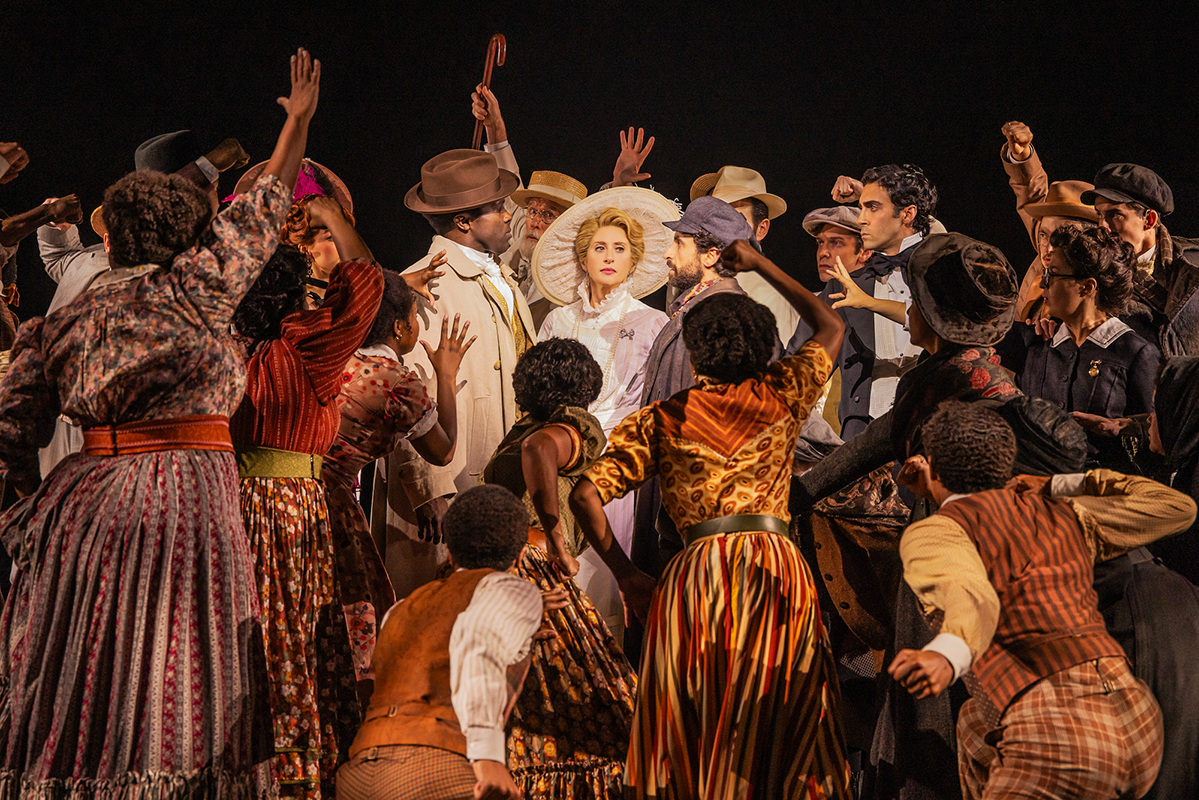
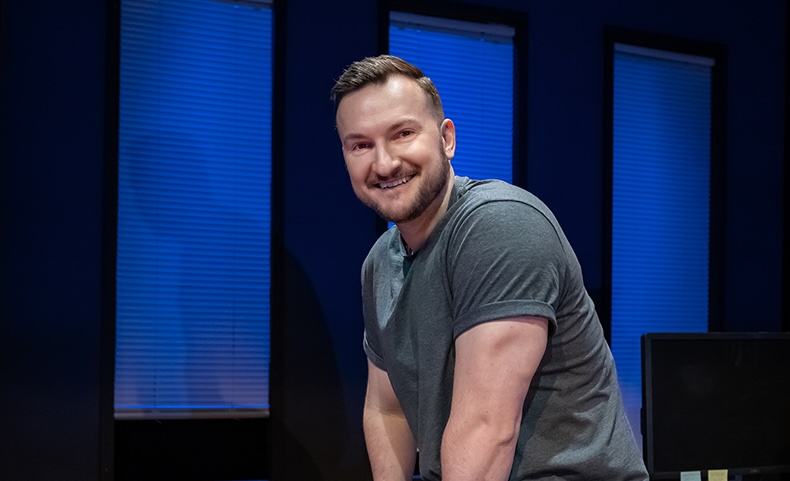
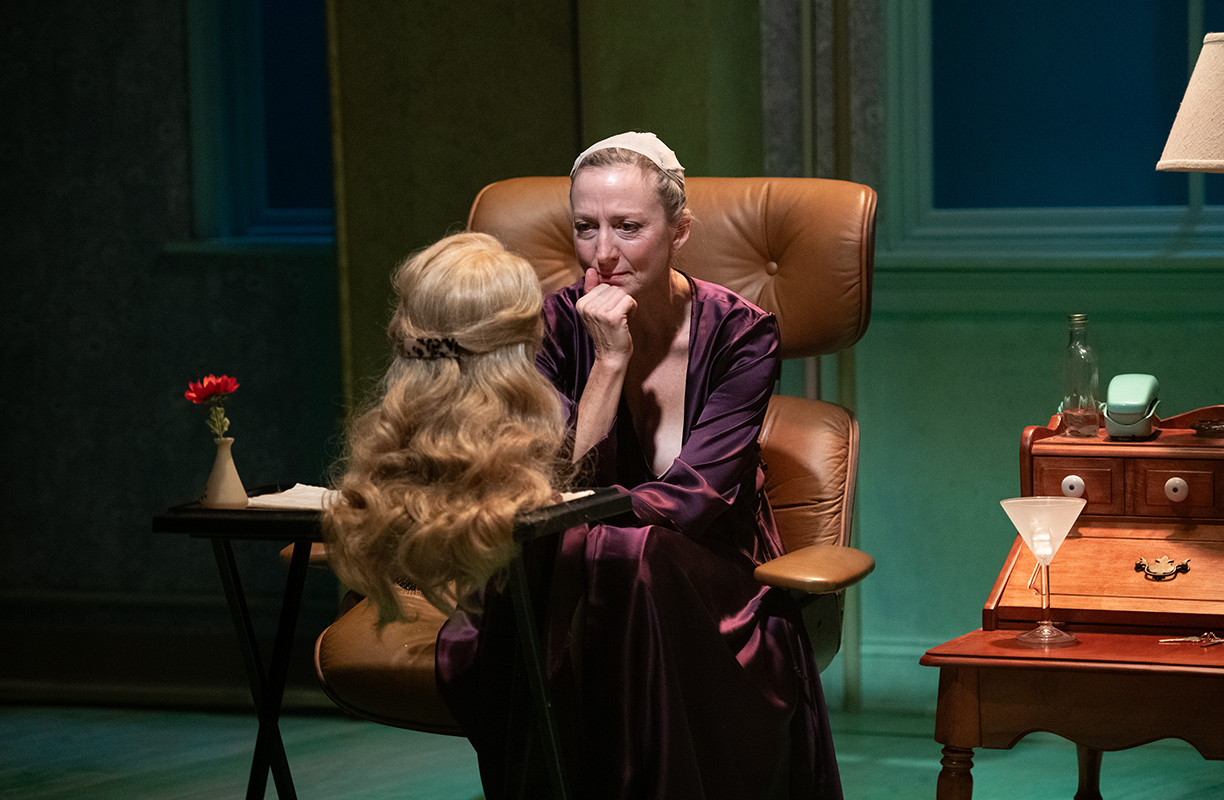













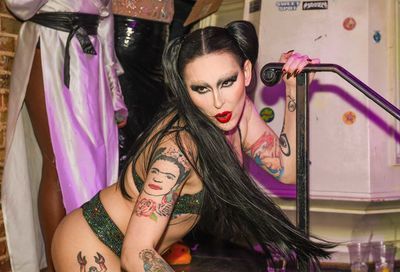
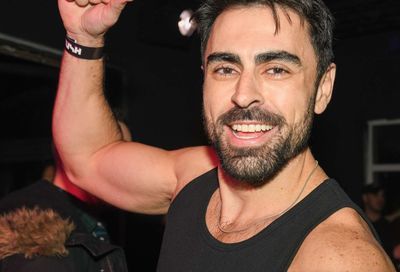
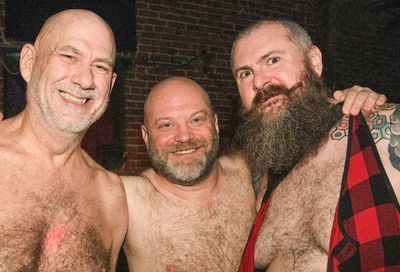
You must be logged in to post a comment.